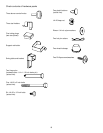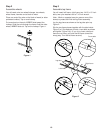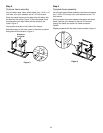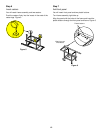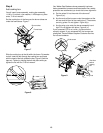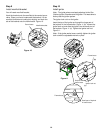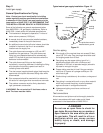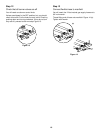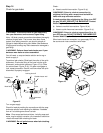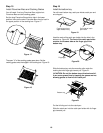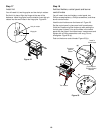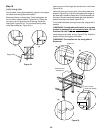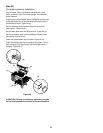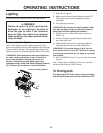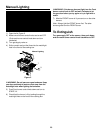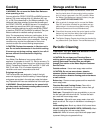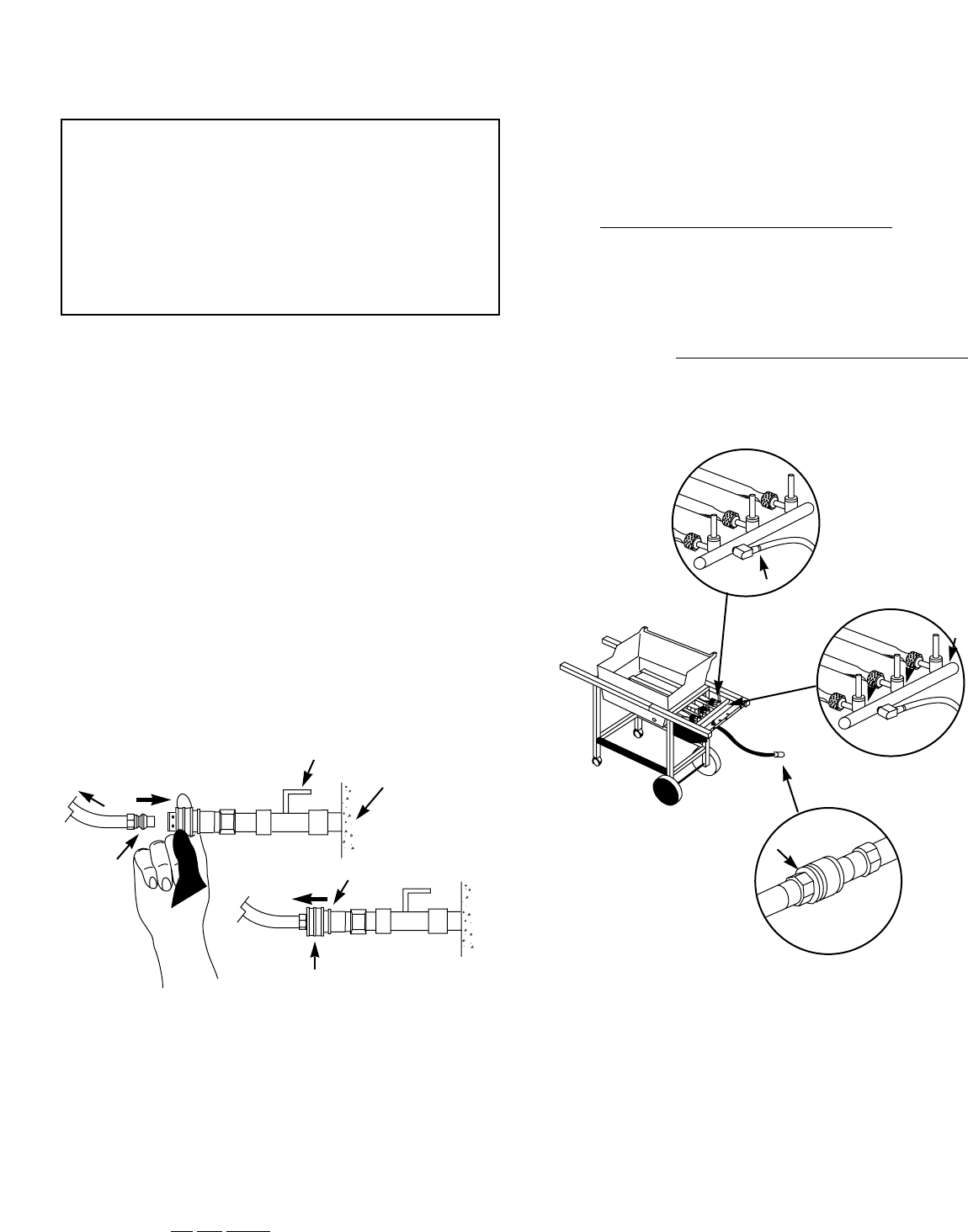
17
Step 14
Check for gas leaks
ƽ DANGER
Do not use an open flame to check for gas
leaks. Be sure there are no sparks or open
flames in the area while you check for
leaks. This will result in a fire or explosion
which can cause serious bodily injury or
death and damage to property.
Turn on gas supply.
Check for leaks by wetting the connections with the soap
and water solution and watching for bubbles. If bubbles
form or if a bubble grows there is a leak.
Note - Since some leak test solutions, including soap and
water, may be slightly corrosive, all connections should be
rinsed with water after checking for leaks.
ƽWARNING: Do not ignite burners when leak checking.
(a)
Figure 16
(c)
(b)
Figure 15
Male fitting
To barbecue
Quick disconnect
engaged
Collar
Locking shut off
Outside house wall
(a)
(b)
Check:
a) Hose to manifold connection. Figure 16 (a).
ƽWARNING: If there is a leak at connection (a),
retighten the fitting with a wrench and recheck for
leaks with soap and water solution.
If a leak persists after retightening the fitting, turn OFF
the gas. DO NOT OPERATE THE BARBECUE. Contact
Weber-Stephen Customer Service.
b) Valves to manifold connections. Figure 16 (b).
c) Hose to quick disconnect connection. Figure 16 (c).
ƽWARNING: If there is a leak at connections (b) or (c),
turn OFF the gas. DO NOT OPERATE THE BARBECUE.
Contact Weber-Stephen Customer Service.
When leak checks are complete, turn gas supply OFF at
the source and rinse connections with water.
ƽWARNING: You should check for gas leaks every
time you disconnect and reconnect a gas fitting.
Note - All factory made connections have been thoroughly
checked for gas leaks. The burners have been flame
tested. As a safety precaution you should recheck all
fittings for leaks before using your Weber Gas Barbecue.
Shipping and handling may have loosened or damaged a
gas fitting.
ƽWARNING: Perform these leak checks even if your
barbecue was dealer or store assembled.
You will need: a soap and water solution and a rag or
brush to apply it.
To perform leak checks: Slide back the collar of the quick
disconnect. Push male fitting of the hose into the quick
disconnect, and maintain pressure. Figure 15 (a). Slide
the collar closed. Figure 15 (b). If it does not engage or
lock, repeat procedure. Gas will not flow unless the quick
disconnect is properly engaged.



